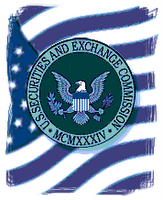 The Sarbanes-Oxley Act of 2002 has been called the most significant reform of U.S. securities laws in 70 years. And it has also been called a lot of other, less flattering, things. Despite all the domestic and international whining over SOX (as it’s affectionately called—or “Sarbox”, for those of you who like their laws to sound like detergent brands), it appears that everyone else in world secretly thinks Sarbanes-Oxley got it right. Ethiopis Tafara, the Director of the Securities and Exchange Commission’s Office of International Affairs today published a report (linked here, “A Race to the Top: International Regulatory Reform Post Sarbanes-Oxley,”) that describes how the main provisions of the Sarbanes-Oxley Act (including the dreaded Section 404, discussed here) have been adopted in countries ranging from Australia, Canada and the UK to China, Japan, France and Germany. (A version of this article appeared this past week in the International Financial Law Review.)
The Sarbanes-Oxley Act of 2002 has been called the most significant reform of U.S. securities laws in 70 years. And it has also been called a lot of other, less flattering, things. Despite all the domestic and international whining over SOX (as it’s affectionately called—or “Sarbox”, for those of you who like their laws to sound like detergent brands), it appears that everyone else in world secretly thinks Sarbanes-Oxley got it right. Ethiopis Tafara, the Director of the Securities and Exchange Commission’s Office of International Affairs today published a report (linked here, “A Race to the Top: International Regulatory Reform Post Sarbanes-Oxley,”) that describes how the main provisions of the Sarbanes-Oxley Act (including the dreaded Section 404, discussed here) have been adopted in countries ranging from Australia, Canada and the UK to China, Japan, France and Germany. (A version of this article appeared this past week in the International Financial Law Review.)Since SOX appears to have become the de facto international standard for securities regulation, what does this mean for the argument that Sarbanes-Oxley is driving foreign companies from America’s shores? Also, what does this all mean for the UK Financial Services Authority and the London Stock Exchange, who have been using Sarbanes-Oxley as an advertising brochure to convince Russian and Chinese companies to list in the City rather than in New York? Interestingly, the SEC OIA report notes that the UK , rather than the United States, tends to be the outlier when it comes to the "principles-based" versus "rules-based" debate, particularly over such things as the types of non-audit consulting services that accounting firms can offer their audit clients (i.e., the types of work that got Arthur Andersen into so much trouble).
Likewise, if there are problems with Sarbanes-Oxley in the sense that it is making it difficult to attract foreign issuers, does the fact that so many of its provisions have been adopted abroad mean that the real issue may be with implementation? Are these foreign provisions going to go unenforced? Or is the fear that the SEC/PCAOB will over-enforce?
Or perhaps Sarbanes-Oxley represents another example of the SEC's "regulatory imperialism"—with the SEC first demanding that foreign companies comply with U.S. rules, and now convincing the rest of the world that this approach is the way to go? If so, does this explain the UK FSA's recent attempts at the Financial Stability Forum meetings to push for a set of global standards for cost-benefit review of domestic regulation, as a way to undercut triumphal American regulation? (Good luck on that, by the way. Congress always loves it when some international body tells them what they should do.) And if this is true—that other countries have been cajoled into agreeing with the United States on how capital markets can best be regulated—does this make some kind of future "mutual recognition" of regulatory regimes a possibility? After all, if everyone if converging around Sarbanes-Oxley as the de facto international standard (even if it is only the VHS of regulatory standards), would this not open the door to better cross-border investment and capital-raising opportunities and lower transaction costs?
For what it's worth, “A Race to the Top: International Regulatory Reform Post Sarbanes-Oxley” is an interesting read.
1 comment:
The actual report calls it a "race to optimality," where optimality is the optimal amount of regulation. Get too little regulation, and investors flee and your cost of capital goes up. Get too much regulation, and the costs of compliance get passed on to investors (one way or the other, since their slice of the profits is smaller) and investors flee.
Clearly, the SEC piece is designed to take a shot at critics of SOX who complain that SOX is making our markets uncompetitive. The response is, if SOX is so bad, why is everyone jumping on the bandwagon? I think the truth is a little more complicated, but it is still interesting to see how many other countries have adopted even the most controversial aspects of SOX (particularly management's assessment of the company's internal controls, and even a few, like Japan, requiring an auditor opinion on that assessment).
SEC Chairman Chris Cox is testifying before the House Financial Services Committee next Tuesday(a hearing titled Sarbanes-Oxley at Four: Protecting Investors and Strengthening the Markets, so it will be interesting to see if he brings this up.
Post a Comment